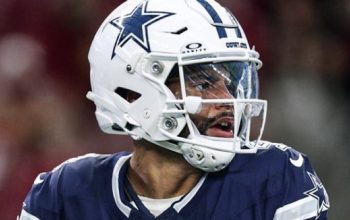The NFL’s Chargers were born as members of the American Football League (AFL) in 1960. They played their first season in Los Angeles before moving to their current and longtime home in San Diego. The team has been in the news of late because they seem to be primed to move back to their native city of Los Angeles, and fans of the San Diego Chargers fear they’ve seen their home team for the last time.
If the Chargers do end up playing in Los Angeles again, it will be of small consolation to football fans in San Diego to know that the move will at least be appropriate to the origin story of their nickname.
Tommy Walker is not exactly a household name, but every sports fan is familiar with his work. As a student at the University of Southern California in the 1940s, Walker, a veteran of World War II, a musician, and a football player, was known as the placekicking drum major. An article on USC Rugby’s website describes his considerable exploits like this: “As a member of the Trojan Marching Band, he was known as ‘Tommy Trojan,’ and as a USC football player, he would shed his band uniform, come down from the stands, and kick extra points.”

A war hero known for tearing off his band gear, revealing a football uniform while charging onto the playing field might be enough to cement a guy’s place in sports lore, but Walker’s lasting legacy has nothing to do with all of that. Sports fans might not know his name, but they know his work—and participate in it every time they hear a familiar little trumpet fanfare that makes them yell “Charge!”
 Walker is credited with composing those six little notes as a USC junior in 1946. A 1990 Sports Illustrated article tells of the origins of the famous bugle call:
Walker is credited with composing those six little notes as a USC junior in 1946. A 1990 Sports Illustrated article tells of the origins of the famous bugle call:
Walker once told the Los Angeles Herald Examiner that he introduced the trumpet call at a band practice. “I played a few notes on the trumpet—Da-da-da-DAH-da-DAH—and the band yelled, ‘Trojan warriors, charge!’ ” he said. “It seemed kind of effective, so we decided to try it that Saturday.”
Needless to say, it caught on and became a staple not only of USC football, but of sports teams everywhere. By the time Walker passed away in 1986, the simple tune was ubiquitous on the sports landscape, so much so that no one gave much thought to its origins—no one, that is, except Bobby Kent, who claimed to have written it himself in 1978, when he went by the name Ira Brandwein and worked as the musical director for the San Diego Chargers. As described in an article on Slate.com, Kent filed suit in 2011, seeking payment from the many teams who had ever used it. This mobilized the internet mob, who rose to Tommy Walker’s defense as the tune’s creator, squelching the lawsuit before it ever got off the ground.

In 1959, there was someone else who took notice of Tommy Walker’s trumpet fanfare. Barron Hilton, the founder and first owner of the Chargers, described how the team got its name in an interview on Chargers.com.

“Frank Leahy, who was the general manager of the Chargers, decided to have a contest and individuals submitted names, and the name that we all liked was the Chargers,” he said. “That was because of the bugle call in the USC games where they go ‘Da-da-da-dump-de-dump’ and everybody would yell ‘Charge!'”
Hilton continued, “That today is being used with baseball clubs and certain other athletic events. You’ll hear that da-da-da-dump-de-dump and everybody yells ‘Charge!’ We decided that we would like to go ahead and call the Chargers that name because of the da-da-da-dump-de-dump.”
For football fans in San Diego, who fear that they’ve already lost their team to their sparkly neighbors to the north, it’s like a lump of coal in their stockings to know that the Chargers name has its roots in the traditions of one of Los Angeles’s signature college football teams. (To make matters worse, the winner of the Chargers’ name-the-team contest—and its prize of a trip to Mexico City and Acapulco, was Gerald Courtney, who lived in Hollywood, LA’s sparkliest neighborhood.)
 If the Chargers do indeed move back to LA, logo fans would likely advocate for the team to reprise its 1960 logo, which is widely regarded as a classic. After moving to San Diego, the Chargers maintained the lightning bolt theme, altering colors and configurations slightly over the course of more than five decades in the city.
If the Chargers do indeed move back to LA, logo fans would likely advocate for the team to reprise its 1960 logo, which is widely regarded as a classic. After moving to San Diego, the Chargers maintained the lightning bolt theme, altering colors and configurations slightly over the course of more than five decades in the city.
Of course, the surprising thing about this story to those who didn’t already know it is not that the history of the Chargers is forever intertwined with a catchy musical ditty. It’s that the catchy musical ditty in question is not Captain Q.B. and the Big Boys’ “San Diego Super Chargers,” the team’s disco-charged fight song (even though they’ve never officially been called the Super Chargers).
So going forward, it’s not a question of WHETHER thunderbolts and lightning will light up the sky, but WHERE the Chargers will give it all they’ve got (and more) with the Super Charger try.













